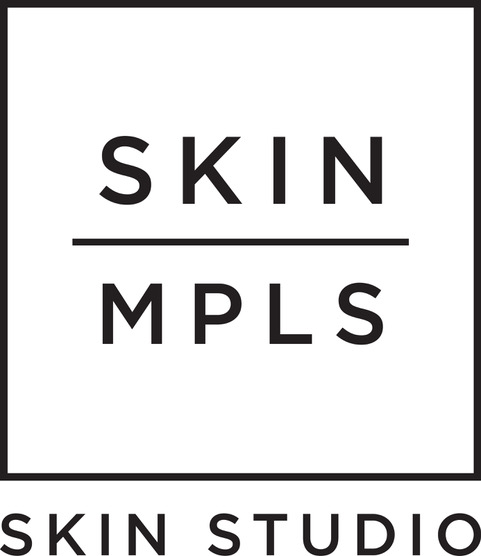Oral Supplements For Acneic Skin: When You Want To Throw Everything (And The Kitchen Sink) At It
We’ve all heard the warning that what’s going on internally in your body can show up externally on your face (or maybe even worse – via other bodily symptoms like aches and pains). And while we’ve certainly seen this first-hand on our clients in the studio, it doesn’t prove true 100% of the time with acne. But recent studies are showing more definitively that for some, what you put in your body really can directly affect your skin.
It’s no secret that here at Skin MPLS, when acne is your main concern, we suggest staying away from biotin, B12, and daily multivitamins (always better safe than sorry!) – so, which supplements can actually be beneficial to take when it comes to helping acne and skin? Here we’ll cover the supplements we’ve found to be the most helpful for acne (and overall skin health) – as well as what to look for when sourcing them so that you know what you’re buying is actually what you’re getting* (more on this below).
With so many supplements on the market, here’s our advice on where to start. And remember, while it’s always best to get your nutrients from whole food sources (and, frankly, your nutritional advice from licensed nutritionists – but hey, we want to help your skin in any way we can!), it can be difficult to do that – so these supplements can be a helpful tool for your skin.
Cod Liver Oil
Sounds gross, we know, but hear us out. Cod liver oil is packed with vitamin A (which helps encourage healthy cell regeneration) and it’s also one of the only supplements that contains naturally occurring vitamin D (which is shown to boost your mood and hormone levels). Not to mention that it’s also rich in the anti-inflammatory omega-3 fatty acids EPA and DHA to prevent skin (and other) inflammations.
Nordic Naturals is usually our go-to brand. They do third-party testing and they even have a cod liver pill that’s coated with lemon to mask the taste – no fish breath over here!
Digestive Enzymes
In our fast-paced lives, we are very rarely sitting down to eat and we’re usually devouring our meals in minutes. Without properly masticating our food, we can get impaired digestion which can lead to intestinal inflammation and toxin overload in the blood which can cause breakouts or other skin struggles.
Mary Ruth’s Digestive Enzymes are a good third-party tested option.
Zinc
This has been a go-to for years with people who are acne-prone but there is a sweet spot. We find that between 50-60 mg of zinc per day is enough to protect against oxidative stress and chronic inflammation which can be huge acne triggers. Vegetarians and birth control users are especially prone to zinc deficiency. But remember, less is more because an excess of zinc can actually lead to more breakouts.
One of our go-to’s is Source Naturals’ Opti Zinc.
Probiotics
Healthy skin is largely associated with a healthy gut (more keeps coming out on this every day). Imbalances of healthy gut microbiomes have been linked to eczema, psoriasis, rosacea, and acne. Research shows that choosing a spore-based probiotic is the best option for supporting gut homeostasis and a healthy inflammatory response.
Some of our favorite spore-based probiotics are Just Thrive, Mega Spore Biotic, and Pure Encapsulations.
NAC (N Acetyl Cysteine)
This is an amino acid that forms the building blocks of protein in the body and it's especially important for glutathione production – which is your body’s major antioxidant. Studies have shown that people who struggle with acne have low glutathione levels.
Pure Encapsulations has a great NAC supplement and they do third-party testing.
Vitamin C
Intake is linked to an increase of antioxidants and the ability to help fight off excess free radical production that can accelerate aging. Studies have shown that people who struggle with acne have lower levels of antioxidants than those with clear skin. Ideally, opt for a whole food source of vitamin C but when you can’t – try one of these:
Acerola Powder by Perfect Supplements and Camu Camu powder by Navita’s Organics are both good options.
Inositol
For people who struggle with PCOS (Polycystic ovarian syndrome), inositol is especially helpful. Those with PCOS are susceptible to high androgen levels and high insulin levels (both of which are shown to aggravate acne) and inositol is shown to help lower both of these to create hormonal balance.
Pure Encapsulations has inositol in both powder and capsule form.
DIM (Diindolylmethane)
This is another great option for people who struggle with PCOS. DIM blocks androgen receptors (think: excess testosterone) from getting into the body. Both males and females produce testosterone but people with PCOS usually produce testosterone at a higher rate which can contribute to acne.
Thorne DIM and Estroblock Pro are both great options.
*Supplements are not regulated by the FDA, so they’re really operating on the “honor system” – and sadly, some of them have proven they can’t be trusted. In 2015, the New York attorney general investigated the supplements sold at Target, Walmart, Walgreens, and GNC. Unfortunately, they found that over 79% did not contain any of the herbs listed on the label.
To ensure you’re getting all the benefits you’re hoping for, we recommend opting for supplements that are third-party tested. This means the company sends its product to an outside source (like an unbiased lab) to ensure that the product meets the standards of the company and ensures that what’s on the label is actually in the product. We also suggest staying away from gummy vitamins. Gummies usually contain more sugar than they do active ingredients, which means it’s offering no benefit to you or your skin – and probably adding to your acne. Wah wah.
